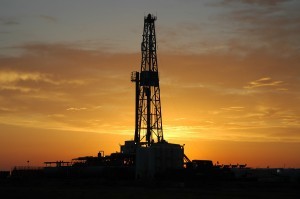Roadsnacks.net recently identified its candidates for “The Ten Worst Places to Live in Illinois,” and although the article is basically infotainment—the written word’s equivalent of reality TV—and plenty of people disagree with the rankings, it does highlight an undeniable fact: The Illinois towns cited in the article suffer from high unemployment, low incomes, and high poverty rates, which in turn are associated with higher rates of robberies, theft, and even murder.
Although these towns currently face a bleak economic outlook, that may change in the future. Many of the towns discussed in the article have an opportunity to benefit from hydraulic fracturing, also known as fracking, which has led to tremendous economic growth in states such as North Dakota, Pennsylvania, and Texas.
In Pennsylvania, fracking transformed Bradford County from a depressed county with the highest unemployment rate in the region into a boom area with the lowest unemployment rate. The energy industry directly employs approximately 28,000 people there, at an average yearly compensation of $93,000. Similar opportunities may emerge for communities on the Illinois list.
For example, Benton, Illinois, which ranked dead last on Roadsnack’s list with an unemployment rate of 9.4 percent and an average annual income around $29,000, is located near Wayne County, an area some analysts expect to be the epicenter of drilling in the New Albany Shale. Neighboring counties with oil and gas deposits are also likely to reap the economic benefits of fracking.
A study conducted by a professor at Illinois State University estimates as many as 47,000 living-wage jobs could be created by hydraulic fracturing in the New Albany Shale. This figure does not include royalty payments to landowners for leasing their property for mineral exploration and production, so the potential for hydraulic fracturing to revitalize rural areas in downstate Illinois could be even greater.
One of the reasons these towns missed out on the first round of the fracking boom is because no fracking occurred while the Illinois Department of Natural Resources (IDNR) worked to finalize its hydraulic fracturing regulations. By the time the rules were finalized, oil prices had plummeted from their highs of more than $110 per barrel in the summer of 2014 to around $46 per barrel today.
When oil and natural gas prices fall, producers tend to stick to the areas they know best, and exploratory wells in a new state with a new regulatory regime and unknown potential for a return on investment are typically the first projects to get shelved.
It would be unfair to pin the delay in Illinois fracking solely on IDNR, because few foresaw oil prices falling so drastically in the course of six months. However, some environmental groups do deserve blame for explicitly trying to delay the rulemaking process. These groups gleefully encouraged their members to comment on the proposed rules numerous times in a deliberate attempt to “bury the IDNR” in comments. Spamming the public comment process to obstruct the regulatory system, instead of submitting one comment voicing their concerns, is one reason IDNR’s fracking rules took so long to finalize.
Although some environmental groups seem to think of fracking as a game of tug-of-war, the delays they caused imposed serious harm on the people in these towns by denying them an opportunity for high-paying jobs and royalty payments. Now, these people in economically depressed Illinois towns will have to wait for oil prices to recover before opportunities return.
Not all of the towns on the state’s “worst” list will be able to benefit from hydraulic fracturing and the economic activity that accompanies it, but when fracking returns to southern Illinois, these towns will be able to cross high unemployment and poverty rates off their lists.
Isaac Orr ([email protected]) is a research fellow for energy and environmental policy at The Heartland Institute. Follow him on Twitter @thefrackingguy.





